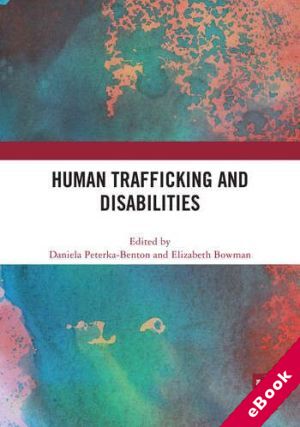
The device(s) you use to access the eBook content must be authorized with an Adobe ID before you download the product otherwise it will fail to register correctly.
For further information see https://www.wildy.com/ebook-formats
Once the order is confirmed an automated e-mail will be sent to you to allow you to download the eBook.
All eBooks are supplied firm sale and cannot be returned. If you believe there is a fault with your eBook then contact us on ebooks@wildy.com and we will help in resolving the issue. This does not affect your statutory rights.
This book explores the intersection of disabilities and human trafficking, focusing on cognitive, developmental, sensory, and physical disabilities before, during, and after the trafficking experience. Human trafficking research remains a broad area of study that has not adequately covered many specific populations, services, and considerations relevant to the field.
The relationship between trafficking experiences and disabilities is complex. Individuals with pre-existing disabilities may be more vulnerable to trafficking due to inadequate social safety nets. At the same time, survivors may develop disabilities as a consequence of their trafficking experiences. The research featured illustrates a relationship between access to social connections and therapeutic services and the increased risk of exploitation for individuals with disabilities. It begins a more extensive dialogue on the importance of considering disabilities when conducting trafficking research. The research also explores empirical gaps and contributes to a more comprehensive and nuanced understanding of human trafficking vulnerabilities and related needs among populations that experience a variety of disabilities.
This book was originally published as a special issue of Journal of Human Trafficking.